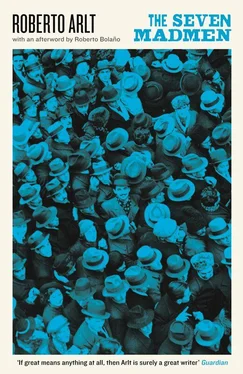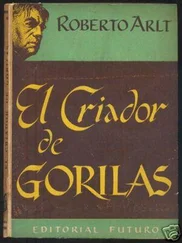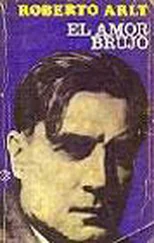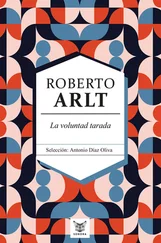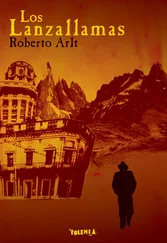It was this emerging society that Roberto Arlt soon began to portray. After his return to Buenos Aires in 1920, he began work as a journalist, first on the crime pages of a newspaper, then with his own column of Aguafuertes porteñas ( Buenos Aires Sketches ). A first novel El juguete rabioso ( The Enraged Toy ) was published in 1926, but largely passed unnoticed. Los siete locos ( The Seven Madmen ), which ArIt considered his most important work, was published in October 1929, once again to little critical attention.
Arlt’s madmen are holy fools. Their dreams of finding paradise on earth are endlessly thwarted by a society that spurns their need for purity, and offers instead only incomprehension and constant humiliation. This process begins in childhood, as Erdosain confesses to his wife when she is about to leave him. Not only does the father savagely punish the boy, but by deliberately delaying the punishment until “tomorrow”, he succeeds in poisoning the future, leaving the wretched child with only fear and an overwhelming need to escape reality in imagination or in madness.
In the adult Erdosain, as in the other main characters of this novel, or with Silvio Astier in The Enraged Toy , this humiliation spawns both anguish and the rancorous desire “to do something to bring down this society”, governed as it is by “niggardly, stupid lies”. Their imagination is dominated by ways of getting revenge, of paying society back for all it has supposedly inflicted on them. But beyond this bitter desire, Arlt sees little real possibility of ushering in a utopia. The revolution according to the Astrologer will be a mishmash of everything from the racial suprematist visions of the Ku-Klux-Klan to Lenin’s brand of socialism. Even he does not seem to believe in any of the wild ideas put forward by the “apocryphal geniuses” he has attracted to him. Arlt himself certainly does not. By juxtaposition, by irony, by confusion (what finally is the status of this Major who may or may not be an army officer?) he shows his characters as inextricably part of a society which has no fundamental beliefs or sense of direction.
The continuation Los Lanzallamas ( The Flamethrowers ), which takes up the action immediately where it ends in the current novel, followed in 1931. El amor brujo ( Love the Enchanter ) appeared in 1932. When this was no more successful than the previous novels, actor friends appear to have persuaded Arlt to try his hand at the theatre. Over the next few years, in addition to continuing with his journalism, Arlt wrote several plays which were successfully performed at the time, but have rarely been revived since. Like Erdosain in The Seven Madmen , Arlt also considered himself an inventor, and in 1932 is recorded as having taken out a patent on a method to prevent ladders in women’s stockings.
None of these efforts brought Arlt stability or prosperity. His first wife died of tuberculosis, and he was remarried soon after to Elizabeth Mary Shine. He started to travel as a journalist: to Spain, Brazil, and Chile, but died suddenly of a heart attack in Buenos Aires in 1942, before his son Roberto was born.
By then, the Argentina of the early years of the century had changed dramatically. Just a few months after the publication of The Seven Madmen , the armed forces overthrew the civilian government of Hipólito Yrigoyen. From 1930 until 1983, political life in Argentina alternated between periods when the armed forces attempted to suppress these new forces in Argentine society, and explosive periods when the latter succeeded in pushing themselves to the fore, as under Colonel Juan Domingo Peron.
Arlt’s genius as a writer comes from the way he succeeded in capturing this conflict in Argentine society before it came to erupt. The only true emotion to come out of Arlt’s novels is one of anguish. This anguish eats away at Erdosain, as it does all Arlt’s main characters. In a seething, hostile city, Erdosain wanders the streets, trying in vain to see himself as part of the multifarious life going on behind dark doors. Denied purity, his imagination — like Hipólita’s, like Barsut’s — becomes twisted and negative, so that instead of even being creatively destructive and sweeping away all the rottenness perceived around them, in the end it contributes only to their own destruction. The most harrowing pages of The Seven Madmen are those where Erdosain struggles desperately to find the physical location of the soul that is causing him so much pain: if we live in a world without transcendence, how can something like the soul exist, and if it does, what shape does it take? Is it thinner and more dangerous than a sword blade? Arlt excels in this depiction of true anguish, felt in the bone, as he does in suggesting real madness when Erdosain is stuck up the acacia tree at dawn, raging like King Lear at the dumb beasts of the field.
Arlt often complained that he did not have the time or the quiet repose necessary to cultivate a proper “style”, and was the first to admit that he wrote “badly”. For many years, when the metaphysical disquisitions of writers like Jorge Luis Borges or Adolfo Bioy Casares were seen as the most perfect expression of Argentine literature he was a neglected figure. Yet there were always those who were concerned with the more sordid challenges that Argentine reality presented them. The Uruguayan writer Juan Carlos Onetti pursued the theme of big city alienation in books such as A Brief Life that owe much to Arlt’s example. In the 1960s, Julio Cortazar saw Arlt as a precursor, and returned to the explosive madness of Buenos Aires in his influential novel Rayuela ( Hopscotch ). Since then, a new generation of Argentine writers has seized on Arlt’s exploration of the still mysterious city of Buenos Aires, his use of its street slang, its crazy juxtapositions, its anguish enlivened by brief moments of exhilaration.
Critics have often complained of Arlt’s repetitions, his lack of grammatical accuracy, his wayward logic. The temptation as a translator is to straighten him out, to bring back a decent sense of order and common sense. In translating The Seven Madmen , I have tried not to do this, while at the same time avoiding adding any incoherencies of my own. I only hope that this crazy, disjointed, glorious book still has in English the power of a good sock to the jaw — as Arlt himself described the power of literature.
AFTERWORD BY ROBERTO BOLAÑO
THE VAGARIES OF THE LITERATURE OF DOOM
It’s odd that it was bourgeois writers who transported José Hernández’s Martín Fierro to the center of the Argentine canon. The point is debatable, of course, but the truth is that Fierro, the gaucho, paradigm of the dispossessed, of the brave man (but also of the thug), presides over a canon, the Argentine canon, that only keeps getting stranger. As a poem, Martín Fierro is nothing out of this world. As a novel, however, it’s alive, full of meanings to explore, which means that the wind still gusts (or blasts) through it, it still smells of the out-of-doors, it still cheerfully accepts the blows of fate. Nevertheless, it’s a novel of freedom and squalor, not of good breeding and manners. It’s a novel about bravery rather than intelligence, let alone morality.
If Martín Fierro dominates Argentine literature and its place is in the center of the canon, the work of Borges, probably the greatest writer born in Latin America, is only a footnote.
It’s odd that Borges wrote so much and so well about Martín Fierro . Not just the young Borges, who can be nationalistic at times, if only on the page, but also the adult Borges, who is occasionally thrown into ecstasies (strange ecstasies, as if he were contemplating the gestures of the Sphinx) by the four most memorable scenes in Hernández’s work, and who sometimes even writes perfect, listless stories with plots imitative of Hernández’s. When Borges recalls Hernández, it’s not with the affection and admiration with which he refers to Güiraldes, or with the surprise and resignation evoked by Evaristo Carriego, that familiar bogeyman. With Hernández, or with Martín Fierro , Borges seems to be acting, acting to perfection, in fact, but in a play that strikes him from the beginning as not so much odious as wrongheaded. And yet, odious or wrongheaded, it also seems to him inevitable. In this sense, his silent death in Geneva is highly eloquent. More than eloquent. In fact, his death in Geneva talks a blue streak.
Читать дальше
